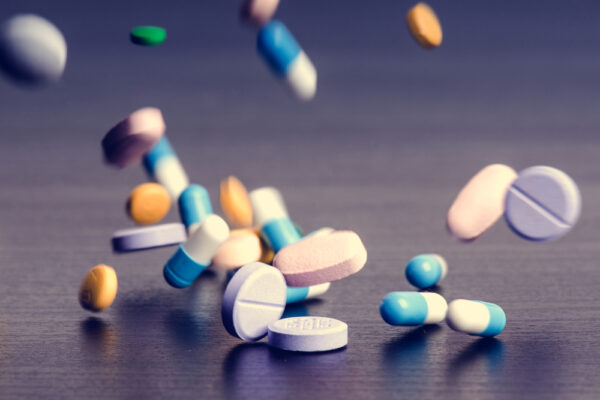Ever wonder if a Red Bull could mess with your physiology? A better question for anyone who’s ever had one might be: ever wonder how it couldn’t?
A new study suggests a potential correlation between energy drinks and heart and blood pressure issues. Yahoo cites a new story from Will Dunham at Reuters:
The increasingly popular high-caffeine beverages called energy drinks may do more than give people a jolt of energy — they may also boost heart rates and blood pressure levels, researchers said on Tuesday.
The results of a small study prompted the researchers to advise people who have high blood pressure or heart disease to avoid energy drinks because they could impact their blood pressure or change the effectiveness of their medications.
The drinks generally have high levels of caffeine and taurine, an amino acid found in protein-rich foods like meat and fish that can affect heart function and blood pressure, the researchers said.
“We saw increases in both blood pressure and heart rate in healthy volunteers who were just sitting in a chair watching movies. They weren’t exercising. They were in a resting state,” James Kalus of Henry Ford Hospital in Detroit, who led the study, said in an interview.
The increases did not rise to dangerous levels in the group of 15 healthy volunteers, whose average age was 26, the researchers said.
But the increases potentially could be significant in people with cardiovascular disease or those taking drugs to lower heart rate or blood pressure, they told a meeting of the American Heart Association in Orlando, Florida.
“While the amount of caffeine in energy drinks or coffee may cause a slight and temporary increase in blood pressure, it would have no greater effect than walking up a flight of steps,” the American Beverage Association industry trade group said in a statement responding to the findings.
“So singling out energy drinks in a unique manner, particularly when compared to a more commonly consumed caffeinated beverage like coffee, does not provide a full and proper context for consumers.”
BOOSTING ENERGY
The products have names like Full Throttle, Amp and Rush. Red Bull, made by Austrian company Red Bull GmbH, is a market leader. Beverage companies market various energy drinks as soft drinks that can boost a person’s energy.
Kalus declined to say which brand of energy drink was used in the study. He said the drinks generally contain similar ingredients, adding, “By giving the brand, it would dilute the message that all of these drinks need to be looked at.”
Coca-Cola Co. makes Full Throttle.
The study participants were asked not to consume other forms of caffeine for two days before starting the study and then throughout a study in which they consumed two cans of energy drinks daily over seven days. Each can contained 80 milligrams of caffeine and 1,000 milligrams of taurine.
The volunteers’ heart rates rose by about 8 percent on the first day and 11 percent on the seventh day.
Maximum systolic blood pressure — the top number in blood pressure readings that represents pressure while the heart contracts — rose by 8 percent on the first day and 10 percent on the seventh day, the study showed.
Diastolic blood pressure — the bottom number that gives the pressure when the heart relaxes between beats — rose by 7 percent on the first day and 8 percent on the seventh day.
The study did not identify ingredients responsible for the changes, but Kalus said it probably was caffeine and taurine.
Kalus said the study did not address possible health effects from the way some people consume these drinks, such as mixing them with alcohol.
For more information on this subject, please refer to the section on Defective and Dangerous Products.

The Legal Examiner and our Affiliate Network strive to be the place you look to for news, context, and more, wherever your life intersects with the law.













Comments for this article are closed.